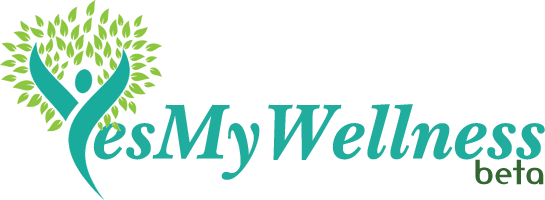Top 5 Tips For Taking Care Of Elderly Parents
Share
It’s an undeniable fact that aging is a part of life and with filial piety as one of the core values of Asian families, many adult children prefer to take on the role of primary caretaker of their elderly parents themselves.
For starters, we need to look into our elder parent’s daily activities, mental wellbeing (and quirks!) to physical and medical support – it’s by all means not an easy task. While it’s also a labor of love, it is quite seldom that families have formal training or study that prepares them for this task.
Keep on reading to find out if you encountered any of the 5 scenarios below while taking care of your parents and the simple tips offered to ensure a smoother process :
Tip 1: Get The Right Tool To Be Organised
Scenario : “My 70-year-old mother stays with me and she is now on 10 types of medicines for her blood pressure, sugar and cholesterol. But sometimes she is not sure if she has taken the medicines. All the tablets are in individual packing and I am not sure which tablet is for what condition. I am worried that her illnesses are not well controlled. What should I do?”
It is common that elderly parents need to take multiple types of medicines due to their health conditions. As the care takers of elderly parents, one needs to be aware of the type of medicines taken. The care takers can bring the medicines to a community pharmacist for review and find out the use of each medicine.
One can organise the medicines by using the pill organiser or pill box. You can use the 7-day damp-proof rainbow colored pill organizer. The damp-proof pill organizer will keep the pills from moisture. The rainbow-colored pill organizer with simple timing icons printed is great for distinguishing different days of the week. It is also important to insert a medication record together with the pill organizer. One can refer to a community pharmacist to prepare a proper medication record.
Tip 2: Be Cautious Of Unregistered Product
Scenario : “My 78-year-old father is munching on a type of seed which he bought from the market last week. He said his friends told him that this seed is very good for his body. I am worried what will happen to him if he takes this seed for long term. So now I would like to find out what sort of seed is this?”
It is normal for that the elderly believes in alternative medicines. But bear in mind that alternative medicines in their raw form are not recommended for consumption, unless the product is processed and made into a better formulation for consumption. More importantly the product must be certified and registered by Ministry of Health that they are safe to consume. One can refer to a community pharmacist to check on the safety profile of the alternative medicine.
Tip 3: Get The Right Treatment
Scenario : “My 65-year-old mother has this pain at her knees for months. But she refuses to consume any medicine to ease her discomfort. She said the medicines can cause kidneys and liver to break down. She thinks she can still walk properly. But I always see her limping away”
Pain is a very common condition. The occurrence of pain rises as one gets older. Women are more likely to be in pain rather than man. The way of an elderly copes emotionally with long term (chronic) pain can influence the quality of the life. There are many causes of pain, so seeking the right diagnosis and treatment are crucial to improve the quality of life of the elderly. Bring the prescription which contains the medicines for pain to a local community pharmacy. The pharmacist in duty should be able to explain the uses, how the medicine works and the benefits of taking the medicines to your elderly parent.
Tip 4: Get The Right Dose
Scenario : “My 70-year-old father goes to see his normal GP every 3 months as he has high blood pressure and diabetes. But I notice that he seldom finishes his medicines. He likes to reduce the frequency of the tablets himself, meaning if this tablet is to take twice a day, he will take only it once a day. Will that affect his health condition?”
The treatment of chronic illnesses commonly includes the long-term use of prescribed medicines. The full benefits of the prescribed medicines can only be seen if elderly takes the medicine as prescribed according to the dose and time. Unfortunately, this may not be the case due to poor medical adherence and compliance. An elderly may not get the blood pressure and diabetes controlled well if the medicines are not taken at the right dose. Bring the prescription and medicines to a local community pharmacist or medical clinic to clarify on the right medicine at the right dose for your elderly parent.
Tip 5: Get The Right Medicine
Scenario : “My 80-year-old mother loves to visit hospitals. She loves to hop around different hospitals too. She said must get a second opinion. Now that she has so many types of medicines from different hospitals and doctors. I am worried she will get overdose by taking these medicines together.”
When there is a simultaneous use of multiple medicines by a single patient to treat an ailment or condition, it is considered Polypharmacy. Polypharmacy is common in elderly, affecting older adults staying in their own home. Concerns about polypharmacy include increased adverse medicine reactions, medicine interactions, and higher costs. Polypharmacy is often linked to decreased mobility and quality of life. Bring the prescription and medicines to a community pharmacist to make sure the medicines are safe to consume.












